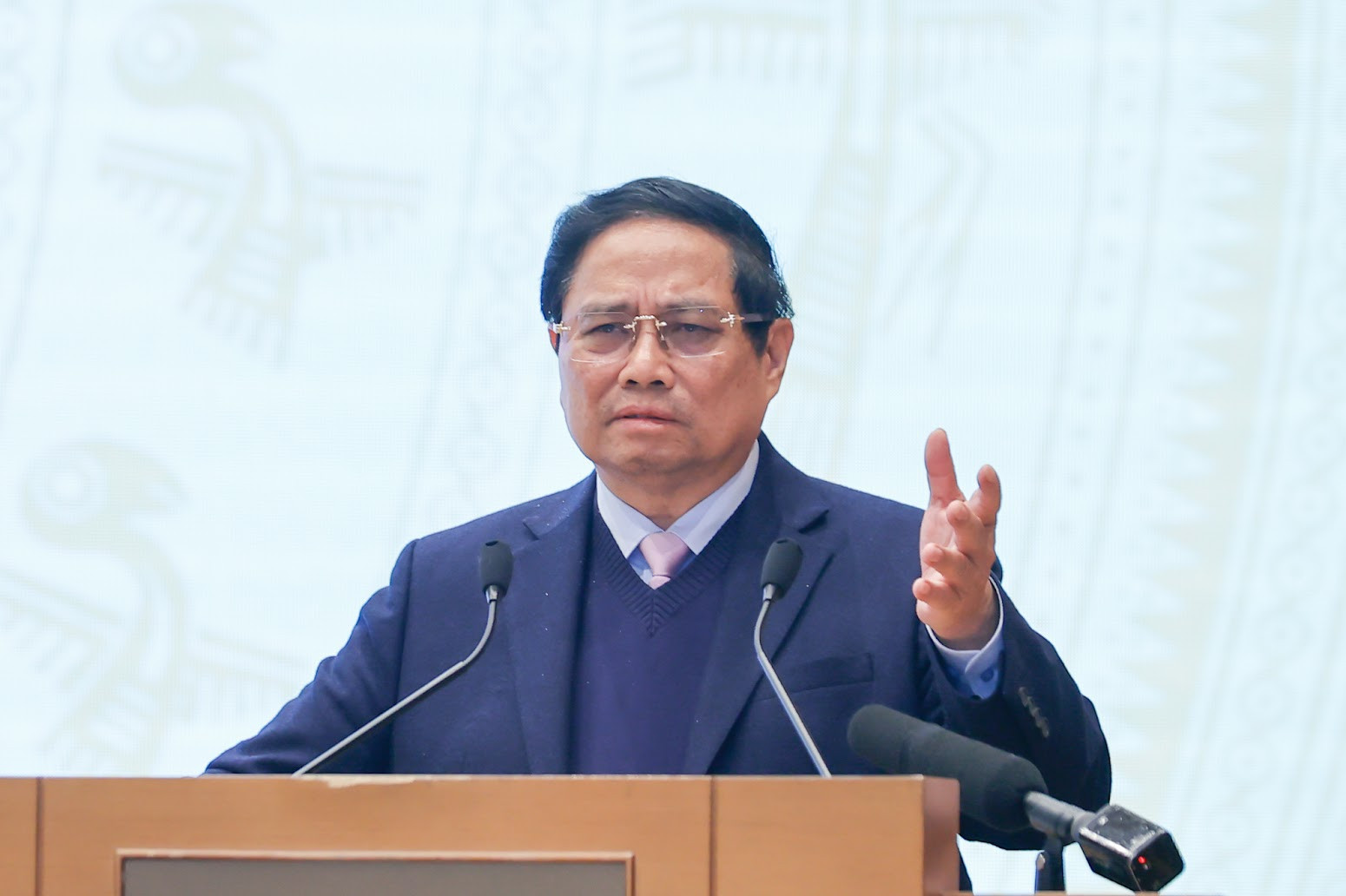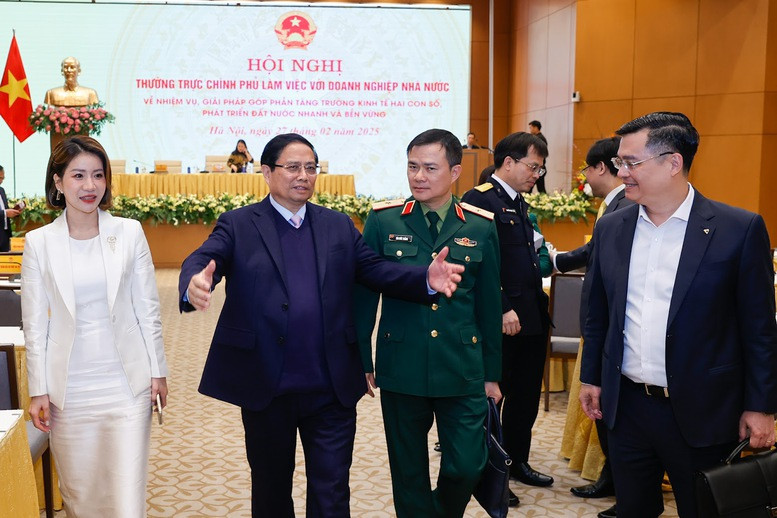
At a government meeting on February 27, Prime Minister Pham Minh Chinh emphasized that state-owned enterprises must drive Vietnam’s economic expansion with greater efficiency, innovation, and proactive investment.
He stressed that these enterprises play a critical role in shaping the country’s economic future and urged them to take a leadership position in accelerating national development.
Vietnam’s state-owned enterprises currently hold nearly VND 4 quadrillion (around $160 billion) in assets, accounting for 20.5% of total corporate capital and generating 23.9% of pre-tax profits.
However, PM Chinh noted that their contributions remain uneven, with major corporations like Petrovietnam and Viettel leading the sector while many other SOEs underperform. Despite holding vast financial resources, the sector has yet to maximize its potential in stimulating economic growth.
The Prime Minister has set a target for state-owned enterprises to achieve a minimum growth rate of 8%, aligning with the broader national economic goal.
To ensure accountability, he has instructed Deputy Prime Minister Ho Duc Phoc to oversee the Ministry of Finance in finalizing and assigning specific growth targets to SOEs and state-owned banks by March 15.
PM Chinh outlined six key areas where SOEs must take the lead. First, they must spearhead innovation and digital transformation, implementing advanced technologies and fostering a culture of modernization in line with Resolution 57 on scientific and technological development.
Second, they need to actively contribute to institutional reforms, helping to remove bureaucratic obstacles that slow economic progress.
Third, they must play a decisive role in driving economic expansion by increasing their efficiency and impact on national growth.
Fourth, SOEs should lead in green and knowledge-based economic initiatives, investing in sustainable industries, renewable energy, and research and development. Fifth, they must engage more actively in social welfare projects, including affordable housing and poverty reduction, to ensure inclusive development.
Finally, they should focus on building strong Vietnamese brands for global markets, strengthening their presence in international supply chains, and elevating the country’s economic standing worldwide.

PM Chinh underscored that the success of SOEs depends not just on financial resources but on their ability to reform, innovate, and take calculated risks. He stressed the need for a fundamental shift in mindset, emphasizing that leadership, vision, and execution will determine their impact.
The government is set to introduce key reforms to support this transformation, including revising the Law on State Capital Management (Law 69) to give SOEs more flexibility in investment decisions, enhancing wage policies to attract top talent, and developing financing mechanisms to facilitate strategic projects.
The Prime Minister also directed the State Bank of Vietnam to study the feasibility of adopting Basel III standards and controlled testing environments (sandbox models) for financial innovation.
This move is aimed at strengthening state-owned banks and ensuring they remain competitive in an increasingly globalized financial sector.
PM Chinh reaffirmed that SOEs must play a pivotal role in achieving Vietnam’s long-term economic milestones, including its goal of becoming an upper-middle-income country by 2030 and a developed nation by 2045.
He called for a collaborative approach between the public and private sectors to ensure balanced economic growth that benefits both businesses and the general public.
With clear mandates, policy support, and an emphasis on innovation, SOEs are expected to drive Vietnam’s economic transformation, paving the way for sustainable and high-impact development.
Nguyen Le